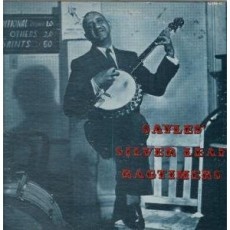
Daily Dose Of Jazz…
Emanuel Sayles: The Banjoist Who Followed the Music HomeEmanuel Sayles was born on January 31, 1907, in Pensacola, Florida, and began his musical education in the classical tradition, playing violin and viola as a child. But the jazz spirit was calling, and Sayles answered by teaching himself banjo and guitar, the instruments that would define his career and connect him to the early New Orleans jazz tradition.
Following the Music to New Orleans
After high school, Sayles made the pilgrimage that so many musicians made: he relocated to New Orleans, the birthplace of jazz, where he joined William Ridgely’s Tuxedo Orchestra, a prestigious gig that put him in the center of the city’s vibrant music scene.
What followed was a classic New Orleans apprenticeship: Sayles worked with the legendary pianist Fate Marable, violinist Armand Piron, and trumpeter Sidney Desvigne on Mississippi riverboats, those floating conservatories where musicians learned to swing, read charts, and play for dancers night after night. The riverboat gigs were grueling but invaluable, connecting Sayles to the earliest generations of jazz musicians and teaching him the repertoire that would sustain him for decades.
Making History in Chicago
In 1929, Sayles participated in recordings with the Jones-Collins Astoria Hot Eight—sessions that captured the raw, collective improvisation style of early New Orleans jazz before it became codified and nostalgic. These recordings remain treasured documents of a transitional moment in jazz history.
By 1933, Sayles had moved to Chicago, where he led his own group and became a sought-after accompanist on blues and jazz recordings, working frequently with the great barrelhouse pianist Roosevelt Sykes and others. Chicago in the 1930s was electric with blues and swing, and Sayles’ banjo added that distinctive rhythmic drive that made everything move.
Always Returning to New Orleans
In 1949, Sayles returned to New Orleans, the first of several homecomings, and joined forces with clarinetist George Lewis, one of the leading voices in the New Orleans traditional jazz revival. In 1963-64, he toured Japan with Lewis, bringing authentic New Orleans jazz to audiences halfway around the world who were hungry to hear the music in its original form.
Back in New Orleans, he played with the beloved pianist Sweet Emma Barrett, then traveled to Cleveland in 1960 to work with trumpeter Punch Miller. From 1965 to 1967, he was back in Chicago playing in the house band at the Jazz Ltd. Club, one of the premier traditional jazz venues in the country.
Preservation Hall and the Final Chapter
Returning once more to New Orleans in 1968, Sayles found his spiritual home with the Preservation Hall Jazz Band, the ensemble dedicated to keeping the traditional New Orleans sound alive for new generations. Preservation Hall wasn’t just a venue, it was a mission, and Sayles was perfectly suited to be part of it.
Documenting the Tradition
Sayles recorded prolifically as a sideman with cornetist Peter Bocage, trumpeter Kid Thomas Valentine, pianist Earl Hines, and drummer Louis Cottrell, each session a masterclass in the early New Orleans ensemble style. As a leader, he recorded extensively throughout the 1960s for GHB, Nobility, Dixie, and Big Lou record labels, ensuring that his particular approach to the banjo, rhythmically propulsive, harmonically sophisticated, never overplaying, would be preserved for future students of the tradition.
The Unsung Rhythm Master
Emanuel Sayles passed away on October 5, 1986, having spent nearly eight decades playing the music he loved. As a master banjoist, he represented something increasingly rare: a direct connection to the earliest days of jazz, when the banjo was king of the rhythm section and New Orleans was the only place the music existed.
Why His Story Matters
Sayles’ career is a reminder that jazz history isn’t just about the innovators who pushed the music forward, it’s also about the dedicated musicians who preserved what came before, who understood that the old New Orleans collective improvisation style had value and beauty that shouldn’t be lost in the rush toward bebop and beyond.
Every time he returned to New Orleans—and he kept returning, Sayles was affirming that the music’s roots mattered, that there was wisdom in the way the old-timers played, that the banjo had a place even as guitars became dominant. From Pensacola to riverboats to Chicago clubs to Preservation Hall, Emanuel Sayles followed the music wherever it led and always, eventually, back home to New Orleans, where it all began.
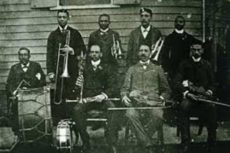
Daily Dose Of Jazz…
John Robichaux: The Forgotten King of New Orleans Dance Bands
Before there was Louis Armstrong, before jazz became the word on everyone’s lips, there was John Robichaux—a Creole musician born January 16, 1866, in Thibodaux, Louisiana, who quietly ruled New Orleans’ dance scene for nearly half a century.
A Multi-Instrumentalist’s Rise
Picture a young man learning brass bass, alto saxophone, and drums, then maturing into a 25-year-old bass drummer with the prestigious Excelsior Brass Band—one of New Orleans’ most respected musical institutions. But Robichaux wasn’t content to simply keep the beat. From 1892 to 1903, while still performing with the Excelsior, he was simultaneously leading his own ensembles and adding violin to his growing arsenal of instruments. The man believed in keeping busy.
The Bandleader New Orleans Trusted
Here’s what makes his story remarkable: Robichaux’s bands weren’t just popular—they were the bands to hire if you wanted class, precision, and professionalism. At one point in 1913, he was conducting a staggering 36-piece orchestra. Imagine coordinating that many musicians in the early 20th century, long before modern amplification or recording technology!
His reputation attracted New Orleans’ finest musicians—legends like guitarist Bud Scott, clarinetist Lorenzo Tio Jr., and cornetist Manuel Perez all played under his baton. When you could attract that caliber of talent, you weren’t just running a band—you were running an institution.
Forty-Six Years at the Top
For an astonishing 46 years, Robichaux was the most continuously active dance bandleader in New Orleans. Forty-six years! That’s longer than most entire careers, a testament to both his musical excellence and his business acumen in an incredibly competitive city.
When History Changed the Game
But history has a way of complicating even the greatest success stories. When Louisiana’s Black Code amendment passed in 1894, it reclassified Creoles of color, throwing Robichaux’s refined Creole orchestras into direct competition with the grittier Uptown Negro bands that played a rawer, more improvisational style. The musical landscape was shifting beneath his feet, gradually eroding the dominance he’d worked decades to build.
A Prolific Legacy
Still, Robichaux persisted with remarkable productivity. Over his career, he composed more than 350 songs and orchestral arrangements—a staggering output that speaks to both his creativity and work ethic. He remained primarily in New Orleans, occasionally touring with the traveling musical revue One Mo’ Time, but always returning to the city that made him.
The Bridge Between Eras
When John Robichaux died of natural causes in 1939, an entire era of New Orleans music died with him. He represents a crucial bridge between the city’s formal, European-influenced dance orchestras and the raw, revolutionary jazz that would soon conquer the world. His bands were where young musicians learned discipline, arrangement, and professionalism before they went off to create something entirely new.
History remembers the revolutionaries, but it often forgets the masters who created the foundation upon which revolutions are built. John Robichaux deserves better than footnote status—he deserves recognition as one of the architects of New Orleans’ musical golden age.
More Posts: bandleader,drums,violin
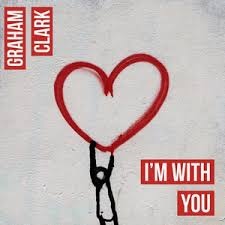
Daily Dose Of Jazz…
Graham Leslie Lionel Clark was born on December 16, 1959 in England. He plays the violin as his first instrument, sings and also the electric guitar. As a freelance violinist he is adept in most styles of jazz, rock, blues and pop, however, he specializes in improvisation.
He worked with Daevid Allen from 1988 to 2014, and has also worked with Andy Sheppard, Keith Tippett, Tim Richards, Phil Lee, Paz, Brian Godding, Elbow, Lamb, Bryan Glancy, Little Sparrow, Jah Wobble, Graham Massey, Louis Gordon and Liz Fletcher.
Violinist Graham Clark, who has been featured on seven albums, continues to perform and record.
More Posts: guitar,history,instrumental,jazz,music,violin,vocal
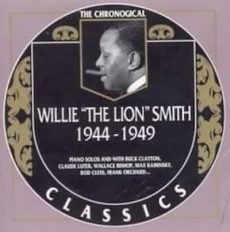
Daily Dose Of Jazz…
Frank Orchard was born on September 21, 1914 in Chicago, Illinois. He studied at Juilliard from 1932-33 and performed for a year with Stanley Melba’s band, but then worked outside of music altogether, mostly as a salesman until 1941.
Orchard became a part of the New York Dixieland scene in the 1940s, working with Jimmy McPartland, Jimmy Dorsey, Louis Armstrong, Bobby Hackett, Max Kaminsky, Wingy Manone, Joe Marsala and the Eddie Condon gang.
The mid-1950s saw Frank’s move to Dayton, Ohio and eventually to St. Louis, Missouri and still playing trombone although out of the spotlight. He never led his own record date and returned to New York in the 1960s. He worked regularly at Jimmy Ryan’s from 1970-71 and with Billy Butterfield in 1979.
Trombonist, violinist, banjoist and tubist Frank Orchard, who also played in the Willie “The Lion” Smith band with Jack Lesberg, Mac McGrath, Max Kaminsky, Rod Cless, died December 27, 1983 in Manhattan, New York City, New York.
More Posts: banjo,history,instrumental,jazz,music,trombone,tuba,violin
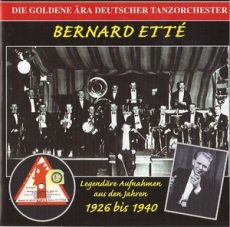
Daily Dose Of Jazz…
Bernard Etté was born on September 13, 1898 in Kassel, Germany. The son of a hairdresser, he studied music formally at the Louis Spohr Conservatory in Kassel. He initially worked with Carl Robrecht as an instrumentalist, playing piano and banjo in addition to violin.
In the early 1920s he assembled his own ensemble, and took up a residency in Berlin, Germany and performed on radio. The group also recorded in the 1920s, often with traveling American musicians. During the 1930s, as the Nazi party rose to power, Etté shifted away from jazz to light music, and led a large orchestra during World War II.
He played for wounded soldiers on behalf of the Nationalsozialistische Volkswohlfahrt in 1940 and for prison overseers at Auschwitz in 1944. After the war, he moved to the United States but was unsuccessful in adapting to new stylistic trends when he attempted a new career.
Returning to Germany, he led bands for luxury retreats in the East Frisian Islands and schlager and operetta backing bands in central Germany. By the end of the 1950s he quit actively playing music, and lived out his last years in an old folk’s home.
Bernard Etté, jazz and light music violinist and conductor died on September 26, 1973 in Mühldorf, Bavaria, Germany.
More Posts: bandleader,conductor,history,instrumental,jazz,music,violin


